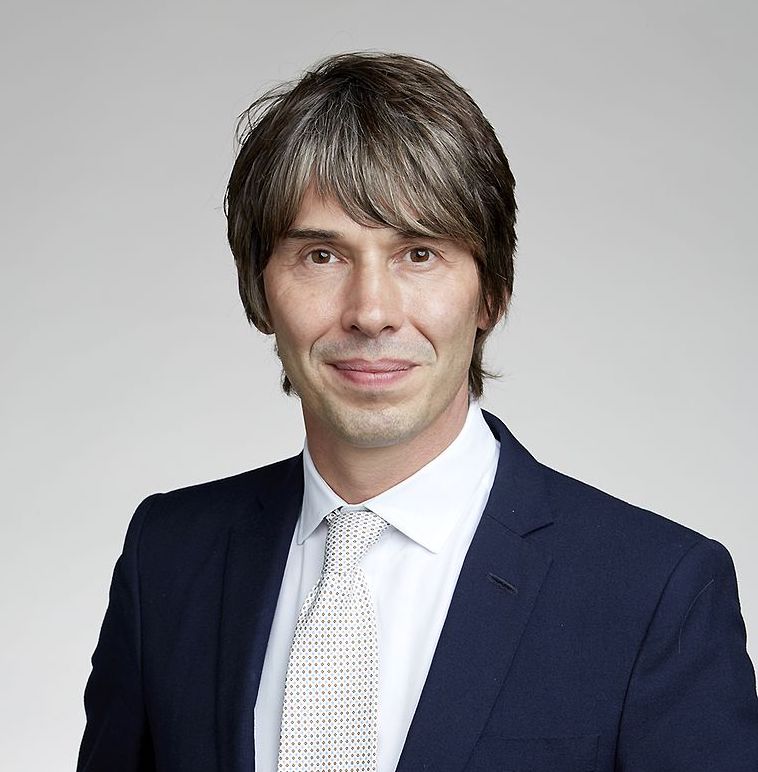 author
authorStuart Kauffman
Stuart Alan Kauffman (born September 28, 1939) is an American medical doctor, theoretical biologist, and complex systems researcher who studies the origin of life on Earth. He was a professor at the University of Chicago, the University of Pennsylvania, and the University of Calgary. He is currently an emeritus professor of biochemistry at the University of Pennsylvania and affiliate faculty at the Institute for Systems Biology. He has a number of awards, including a MacArthur Fellowship and a Wiener Medal.
He is best known for arguing that the complexity of biological systems and organisms might result in as much from self-organization and far-from-equilibrium dynamics as from Darwinian natural selection, as discussed in his book Origins of Order (1993). In 1967 and 1969, he used random Boolean networks to investigate generic self-organizing properties of gene regulatory networks, proposing that cell types are dynamical attractors in gene regulatory networks.
Cell differentiation can be understood as transitions between attractors. Recent evidence suggests that cell types in humans and other organisms are attractors. In 1971 he suggested that a zygote may not be able to access all the cell type attractors in its gene regulatory network during development and that some of the developmentally inaccessible cell types might be cancer cell types. This suggested the possibility of "cancer differentiation therapy."
He also proposed the self-organized emergence of collectively autocatalytic sets of polymers, specifically peptides, for the origin of molecular reproduction, which has found experimental support. Kauffman graduated from Dartmouth in 1960, was awarded the BA (Hons) by Oxford University (where he was a Marshall Scholar) in 1963, and completed a medical degree (M.D.) at the University of California, San Francisco in 1968.
After completing his internship, he moved into developmental genetics of the fruitfly, holding appointments first at the University of Chicago from 1969 to 1973, the National Cancer Institute from 1973 to 1975, and then at the University of Pennsylvania from 1975 to 1994, where he rose to professor of biochemistry and biophysics.
Kauffman became known through his association with the Santa Fe Institute (a non-profit research institute dedicated to the study of complex systems), where he was faculty in residence from 1986 to 1997, and through his work on models in various areas of biology. These included autocatalytic sets in the origin of life research, gene regulatory networks in developmental biology, and fitness landscapes in evolutionary biology. With Marc Ballivet, Kauffman holds the founding broad biotechnology patents in combinatorial chemistry and applied molecular evolution, first issued in France in 1987, in England in 1989, and later in North America.
In 1996, with Ernst and Young, Kauffman started BiosGroup, a Santa Fe, New Mexico-based for-profit company that applied complex systems methodology to business problems. NuTech Solutions acquired BiosGroup in early 2003. NuTech was bought by Netezza in 2008 and later by IBM.
From 2005 to 2009, Kauffman held a joint appointment at the University of Calgary in biological sciences, physics, and astronomy. He was also an adjunct professor in the Department of Philosophy at the University of Calgary. He was an iCORE (Informatics Research Circle of Excellence) chair and the director of the Institute for Biocomplexity and Informatics. Kauffman was also invited to help launch the Science and Religion Initiative at Harvard Divinity School, serving as visiting professor in 2009.
In January 2009, Kauffman became a Finland Distinguished Professor (FiDiPro) at the Tampere University of Technology, Department of Signal Processing. The appointment ended in December 2012. The subject of the FiDiPro research project is the development of delayed stochastic models of genetic regulatory networks based on gene expression data at the single molecule level.
In January 2010, Kauffman joined the University of Vermont faculty, where he continued his work for two years with UVM's Complex Systems Center. From early 2011 to April 2013, Kauffman was a regular contributor to the NPR Blog 13.7, Cosmos and Culture, with topics ranging from the life sciences, systems biology, and medicine to spirituality, economics, and the law. He was also a regular contributor to Edge.org.
In May 2013, he joined the Institute for Systems Biology in Seattle, Washington. Following the death of his wife, Kauffman co-founded Transforming Medicine: The Elizabeth Kauffman Institute. In 2014, Kauffman, with Samuli Niiranen and Gabor Vattay, was issued a founding patent on the poised realm (see below), an apparently new "state of matter" hovering reversibly between quantum and classical realms. In 2015, he was invited to help initiate a general discussion on rethinking economic growth for the United Nations. Around the same time, he did research with University of Oxford professor Teppo Felin.
Best author’s book



Written books
1



















